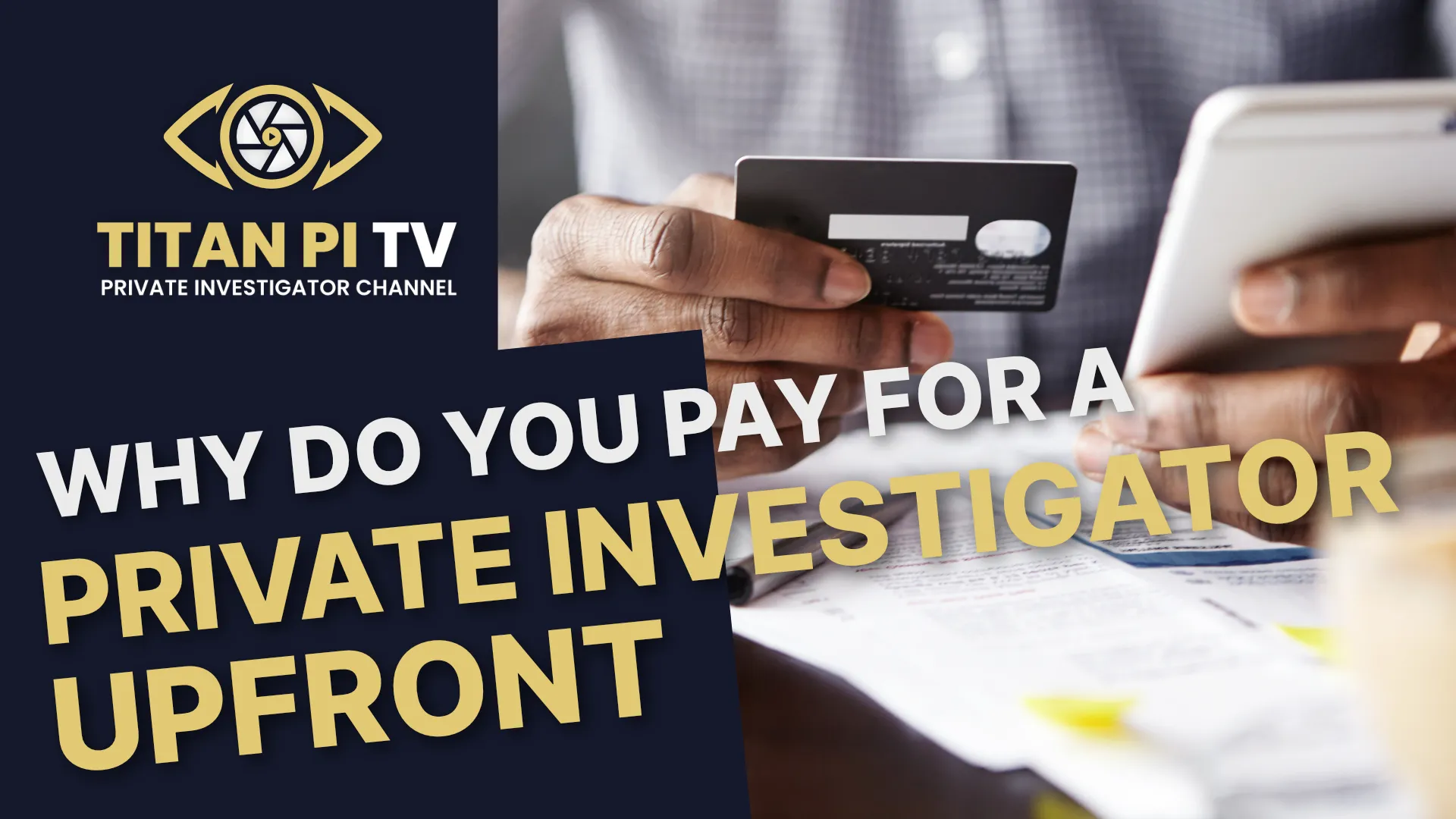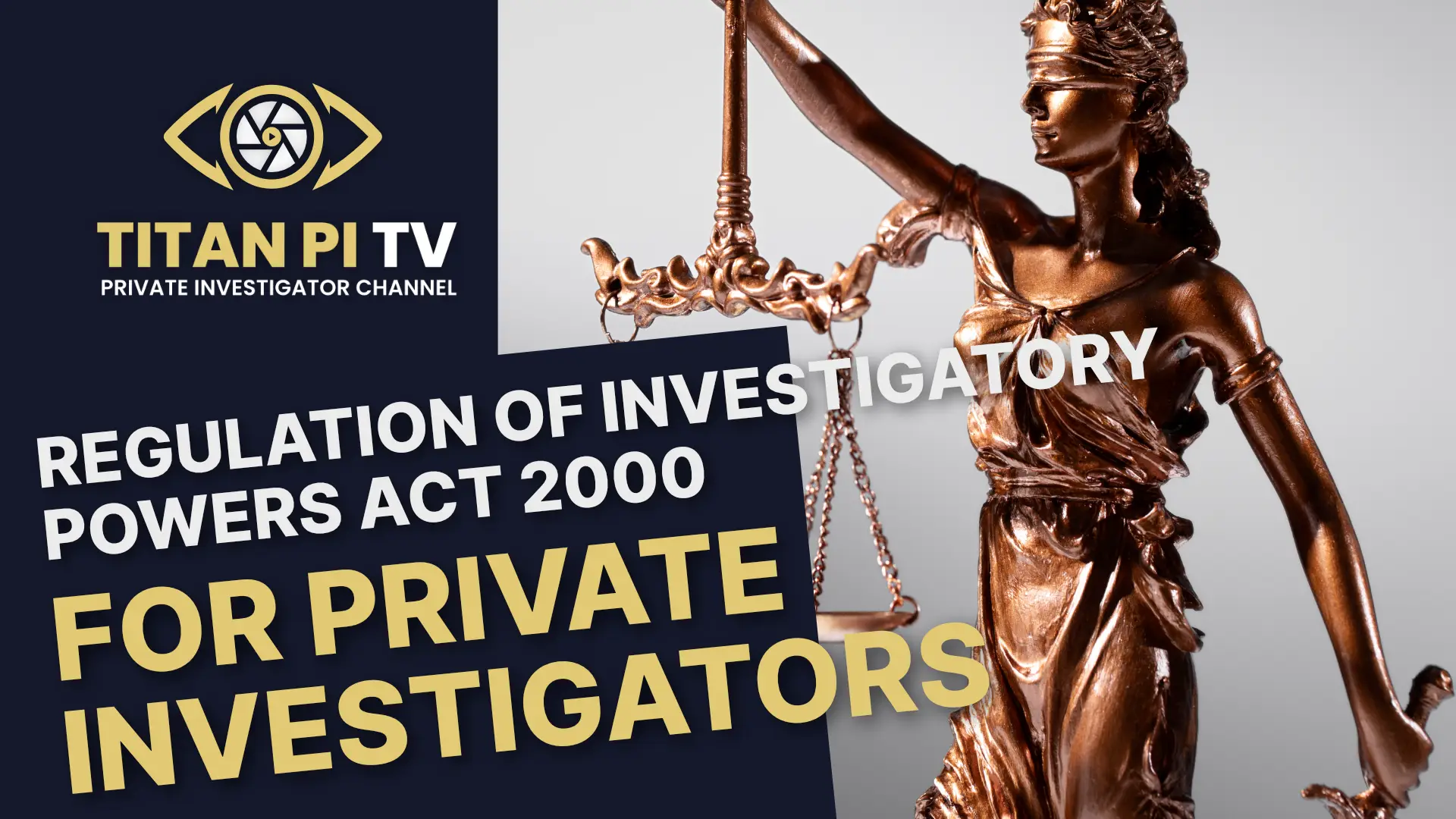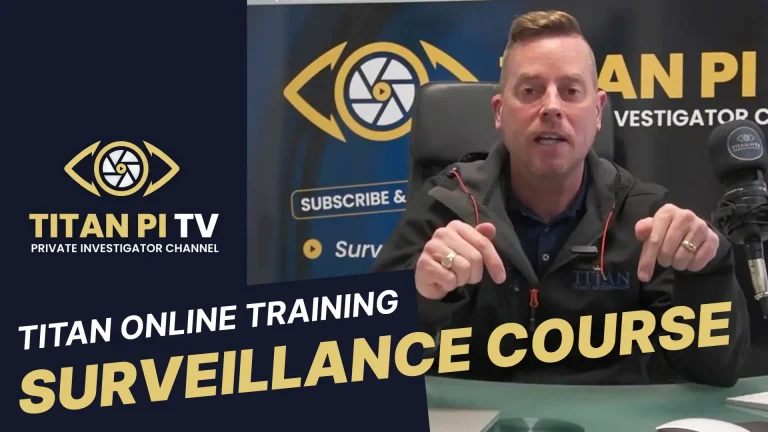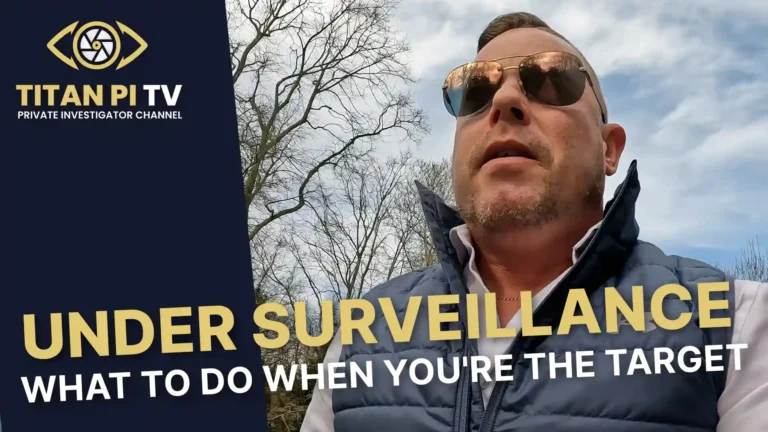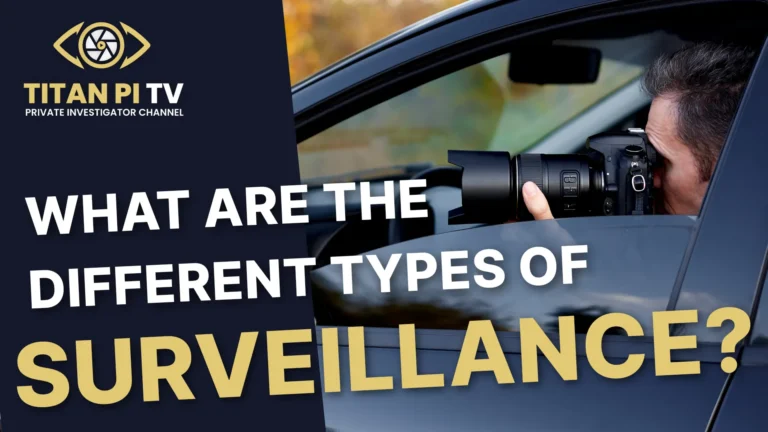When does the Regulation of Investigatory Powers Act apply to Private Investigators?
Welcome to Titan PI TV, your trusted source for expert insights into the world of private investigations. In this episode, our channel host and industry expert, Simon Henson, delves into a critically important and often misunderstood subject: “When does the Regulation of Investigatory Powers Act apply to Private Investigators?” Join us as we unravel the intricacies of RIPA (Regulation of Investigatory Powers Act 2000) and gain a clearer understanding of its impact on the work of private investigators.
Demystifying RIPA – A Key Legal Framework:
Simon starts by introducing the Regulation of Investigatory Powers Act 2000 (RIPA) as a pivotal legal framework governing the use of surveillance and investigative techniques by law enforcement and, in certain cases, by private investigators. RIPA plays a significant role in protecting privacy and civil liberties.
Understanding RIPA’s Application:
Simon delves into the various situations where RIPA applies to private investigators. He explains that RIPA is primarily aimed at regulating the use of surveillance and covert techniques by public authorities and government agencies. However, private investigators may find themselves subject to RIPA if they’re working on behalf of a public authority or in certain circumstances related to national security.
Private Investigators and RIPA Compliance:
Simon discusses the importance of private investigators being aware of and compliant with RIPA if they engage in activities that might fall under its purview. This includes understanding the need for legal authorization, ensuring that surveillance is proportionate and necessary, and respecting individuals’ privacy rights.
When RIPA May Not Apply to Private Investigators:
Simon highlights that not all private investigation work is subject to RIPA. For example, routine surveillance in legal cases like infidelity investigations may not fall under its scope. He stresses that understanding the boundaries and exemptions within the law is crucial for private investigators.
Ethical and Legal Considerations:
Simon Henson emphasizes that compliance with RIPA is not only a legal requirement but also an ethical responsibility. He discusses the importance of maintaining transparency, respecting privacy laws, and obtaining proper authorization when conducting surveillance that may intersect with RIPA.
Join the Discussion:
Don’t forget to like this video, subscribe to our channel for more enlightening episodes, and hit the notification bell to stay updated. Titan PI TV is your trusted source for industry insights, expert advice, and resources to help you navigate the complexities of legal and ethical considerations in private investigations.
Join us as we dive into the world of the Regulation of Investigatory Powers Act (RIPA) and its implications for private investigators. Gain a deeper understanding of the legal framework that governs surveillance and investigative practices. Your journey into the world of investigative insights continues with Titan Investigations!

